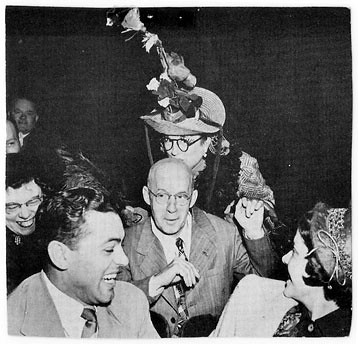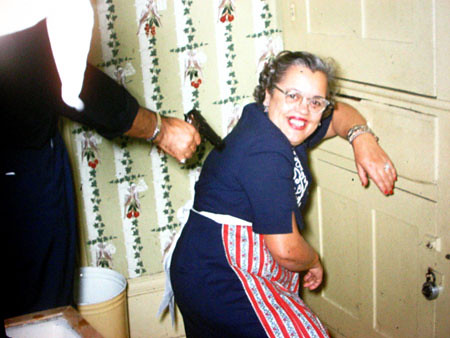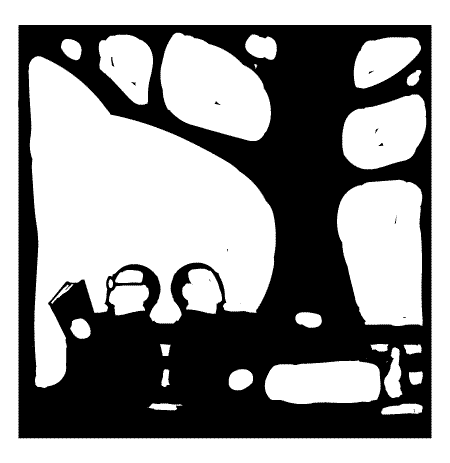“Remembering…is mental time travel, a sort of reliving of something that happened in the past.” —Endel Tulving

my grandparents, in the foreground, at a party
* * *
We celebrated my grandmother’s 80th birthday this weekend, and as we drove into Salem, the open fields and tiny road-side diners took me back, as they always do, to a different time.
It’s my belief that our memories are inextricably linked to places, and that pulling up those memories requires travelling a landscape, rendering the world of that memory.
But I also believe that the human face is its own landscape (something Sergio Leone demonstrated in his films), and so, the sudden appearance of a loved one can also trigger a world of memories. It’s something I’m exploring in the new book, but experienced yesterday firsthand, with all my siblings in one place for the first time in years.
Not only did my old memories come back to me, new memories came back as well. Moments flickered on the edges of my sight that never happened. A life that was never lived. It was something like the opposite of deja vu: what I was seeing in front of me triggered memories that had never existed.
I first encountered this phenomenon in a similar situation: a few years ago my dad and I spent a week in Florida with my brother Nick. It was the most time we’d ever spent together, and as the week went on, like yesterday, I suddenly became aware of a life that could’ve been: a life where we all sat on a back porch after dinner, telling jokes and smoking cigars or something. Were these images uncovering this desire I’ve always had to be closer to my brothers? Or was the desire uncovering these images—this hidden world inside my head that never happened?
* * *

rough sketches of my great-grandfather Sponseller, done from slides
* * *
Chris Ware says of his drawing style:
I try to use the rules of typography to govern the way that I “draw,” which keeps me at a sensible distance from the story as well as being a visual analog to the way we remember and conceptualize the world….I see the black outlines of cartoons as visual approximations of the way we remember general ideas, and I try to use naturalistic color underneath them to simultaneously suggest a perceptual experience, which I think is more or less the way we actually experience the world as adults; we don’t really “see” anymore after a certain age, we spend our time naming and categorizing and identifying and figuring how everything all fits together.
Researchers suggest that we don’t experience déjà vu until the ages of 8 or 9, that up until that point, we simply don’t have the brain development to describe or experience it. But what if, up until that time, we are simply seeing the world for what it is? What if we have no coding or simplifying system or access to a back catalog of images to make the experience possible? As we become older and older, déjà vu experiences become increasingly more common, and especially when we are tired of stressed. When we’re not seeing.
In this article I was reading in the NYTimes yesterday, “Déjà Vu, Again and Again”, there were people who insisted that everything they were experiencing had already happened. Some wires in their brains went screwy, some circuits got crossed, and they stopped seeing new things. Everything had been done. And so they did wacky things like “the woman who turned in her library card because she felt she’d read everything on the shelves.”
My aunt found a bunch of shoeboxes full of beautiful old color slides, so she got a projector, and after the party we all sat in Grandma’s darkened living room, and images of our ancestors flashed on the wall. My dad pointed to faces with a yardstick and told all the stories he knew.
And as the slides passed, looking at these vivid projected colors, I felt the exact opposite of those old folks with the screwy wiring. I felt like nothing had been done. Everything was new. My youth was pulsing, and there were a million lives left to live. A million unknown memories waiting to be visited.


